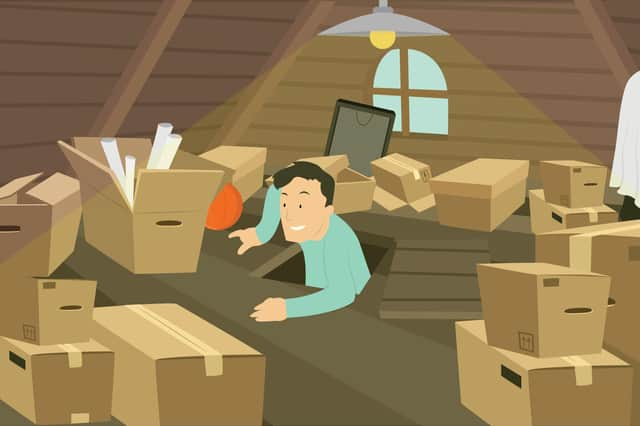Kirsty McLuckie: Radical offloading of possessions could mean throwing away a small fortune


Whether it is the beginning of a new year, or the first hints of spring and its association with a thorough house clean, there is an impulse in the air to get off the couch and tackle the attic, the junk room or wherever you put things “to sort out later”.
A visit to the cowp with bits of broken furniture is never a bad thing, but a radical offloading of your possessions without looking at the alternatives could mean you’re throwing away a small fortune.
Advertisement
Hide AdAdvertisement
Hide AdVlatka Lake, storage expert at Space Station, says that there are old items you should look out for before you toss or donate, as they can sell for impressive sums.
Her company advises that you may be better looking for windfalls, not in your art collection or treasured family heirlooms, but in your children’s cast-offs.
Apparently, Beanie Babies, all the rage with the then wee ones in the 1990s, still command a hefty price tag. The stuffed toys were deliberately made in small batches, and the rarer ones can sell for hundreds of pounds. A 1997 Beanie Baby commemorating Princess Diana once sold for £350,000.
There can’t be many households in the UK without at least one Harry Potter book on the shelves, but according to Abe Books, if you have the original versions they could be worth between £200 and in excess of £40,000.
Lego, the scourge of bare-footed parents the world over, can now sell for more than they did when new.
The 2007 edition of the Star Wars Millennium Falcon is available on Amazon for more than £7,000 –20 times its original value. Even individual blocks, if rare enough, are in demand.
While you are rooting around under your children’s beds for a retirement fund, you might want to check their piggy banks too –20 pence pieces with no date and 2p coins from 1983 with the words ‘New Pence’ on them can now sell for hundreds of pounds.
We had a clear out of spare change just after Christmas, and netted no rare coins, but £16.53 in sterling which is not to be sniffed at.
Advertisement
Hide AdAdvertisement
Hide AdBut the real windfall came in collecting 20 years of spare change in foreign currencies. Looking in various drawers and odd pots around the house, we’ve managed to amass an impressive collection of financial shrapnel plus some folding cash from far-flung countries, some of which we have no recollection of ever visiting.
Checking a currency converter, our stockpile is worth more than £50 at today’s rates, but actually converting each denomination is out, as banks won’t exchange coins.
So what to do with them? I’m too superstitious to literally throw money away – surely the gods of feng shui or some such would be acutely enraged and wreak their terrible vengeance. Perhaps something you wouldn’t want to court when the UK is already facing a cost of living crisis.
Fortunately, some charities will take donations of foreign currency, including coins. Forgive me if I just double check that there aren’t any extremely rare and valuable examples before I hand them over.
- Kirsty McLuckie is property editor at The Scotsman